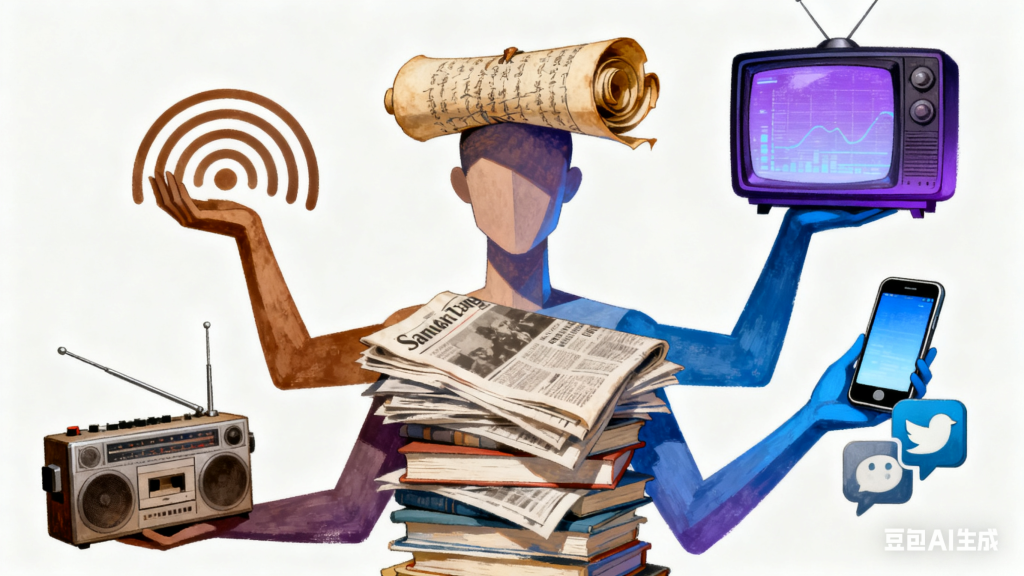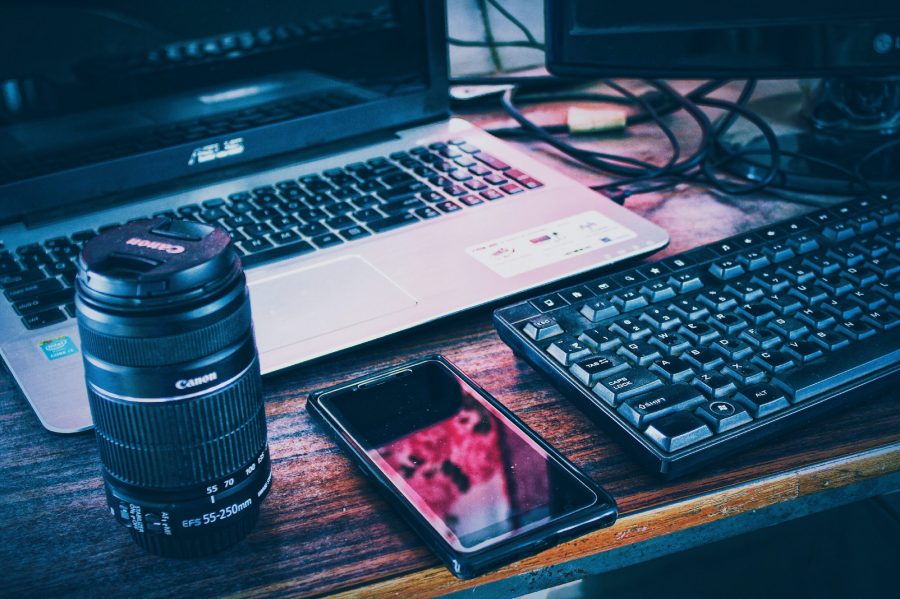
You put on a different act every day, don’t you?
Every day when you turn on your phone, do you do these things? When posting on Moments, you first apply a filter to the lunch photo and caption it “Had a great meal today”; then switch to your work WeChat and immediately reply to the client in a serious tone, “I’ll send you the plan tomorrow”; before going to bed, you browse Douyin, giving likes to cute pet videos and forwarding workplace tips. These small things are actually quietly “piecing together” your online persona.
On the Internet, our identities are not fixed labels but rather like jigsaw puzzles that change with a few swipes on the screen or taps on the keyboard. This aligns perfectly with what “media theory” suggests: media is not merely a tool for transmitting information; its form and capabilities influence how we perceive the world and present ourselves.
First, understand: What exactly does media theory say?
When discussing media theory, it’s impossible to avoid a scholar named McLuhan. He once said a very famous sentence: “The medium is the message.” Don’t think it’s confusing. It actually means that it’s not that the content is unimportant, but rather the form of the medium itself has a greater impact than the specific matters it conveys.
For example, you’ll understand:
In the past, when reading newspapers, we could only obtain information through text, and our identities were quite singular – for instance, “a person who loves reading the evening paper” or “a contributor to magazines”. These identities were all closely tied to long-term and in-depth content.
Later, with the advent of television, we could watch pictures and listen to sounds. We gained the identity of “fans of variety shows”, but we could only passively watch and couldn’t interact.
Nowadays, with digital tools like WeChat and Douyin, we can post, comment and edit. We have shifted from merely being able to watch to being able to create our own content – this is the key to why online identities can be changed so easily.
There are three extremely common characteristics of online identities.
The characteristics of digital tools have made our identities online completely different from before. To sum it up, there are three points, all of which you experience every day:
- A self that can be “fixed”: Show others exactly what you want them to see.
In real life, once words are spoken, they can’t be taken back, and expressions can’t be changed. But it’s different online – before posting on Moments, the text is revised three times and filters are adjusted for a long time; if it’s not right after posting, delete the comments and hide the old posts immediately. This ability to “modify” allows us to selectively present ourselves: for example, on LinkedIn, only talk about work skills; on Xiaohongshu, only show daily life, clearly separating “work me” from “life me”. - Switchable identities: Playing different roles in different apps
Nowadays, with so many apps available, we can have multiple “identities” at the same time: on Weibo, we can be outspoken “commentators”; on Bilibili, we can be avid “otaku” fans of anime; in the parents’ group, we become patient “moms/dads”. These identities don’t conflict with each other, just like an actor playing different roles. Each one is you, but none of them is the whole you. - Identity Influenced by “Likes”: Show More of What Others Praise
When you post something online, you can immediately receive likes and comments. Moreover, the APP will push the content you like, which gradually affects how you present yourself. For instance, if you post a fitness-related update on your Moments and receive a lot of likes, you might start posting more about fitness. When you browse Douyin, if the APP keeps pushing career-related content, you will gradually pay attention to and share it, eventually becoming a “fitness expert” or a “career blogger” in others’ eyes.
Don’t worry: It’s not the media that controls you; it’s you who controls the media.
Some people might ask, “Does that mean our identities are controlled by the app?” Actually, no. Media theory only states that “media can influence you,” but ultimately, the choice is still yours.
Just like using short-video apps, some people will create a “perfect persona” and even fabricate lies; while others will simply share their real lives and use videos to record their days. These two choices are determined by both “what the app can do” and “what you want to do”. Digital tools give you the ability to “show yourself freely”, but how you use this ability decides who you really are online.
The bottom line: Be your true self online as well.
Media theory tells us that online identities are not formed “naturally”, but are gradually balanced out among the characteristics of the tools, our own choices, and feedback from others. While we can enjoy the freedom of being able to express ourselves freely online, we must also stay clear-headed – don’t let apps push you around, and don’t be bound by a “personality setup”. Let every “you” online truly reflect your preferences, thoughts, and growth.
After all, whether online or in real life, “being yourself” is the most important thing.

